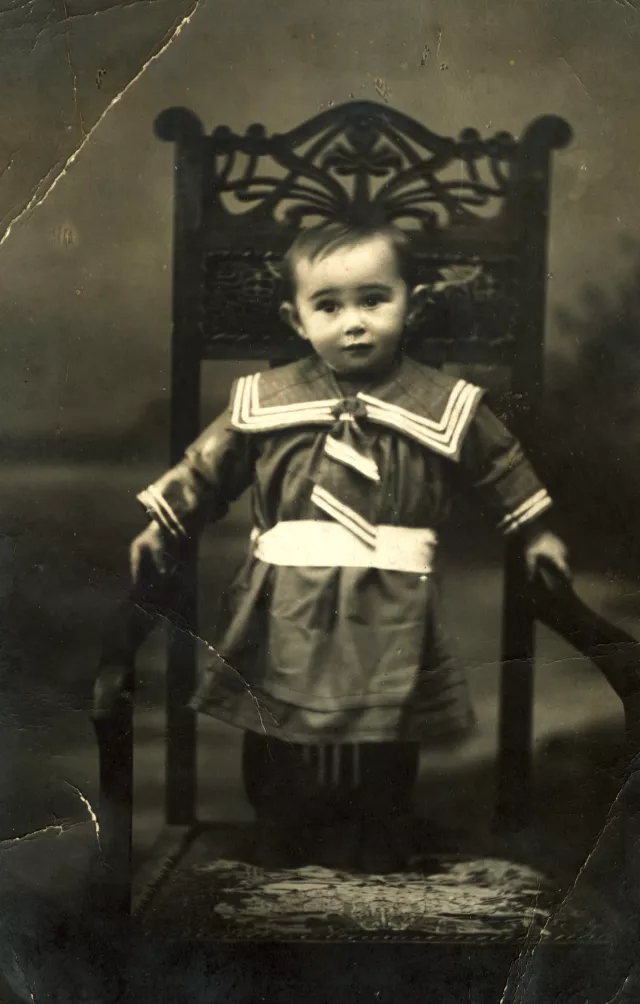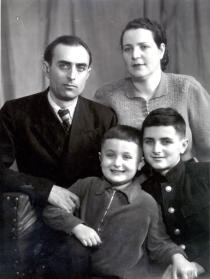Sarah Klug
This is I at the age of one. The picture was made in Ukrmerge in 1919.
I was born on 10 October 1916. My maiden name is Klug. I was given a double name Sarah Polya. I was named after paternal grandmother who died at parturition a long time ago, when she was 22. Mother's relatives were against naming me after her as they said that I would be doomed for a short life. (editor's note: according to the Jewish tradition, the newly born baby was supposed to be named after deceased, nevertheless it was a bad omen to name a baby after the person who died young.) My father was persistent. I had a long life. I am 89.
My parents worked hard and therefore our family was very well-off. Apart from our house, father owned farm land in the village. He hired Lithuanians to work for him and paid them upon harvesting. They had very good relationship. Father paid them well. When the peasants were in Jelva, thee called on us where they could always be accommodated and fed. Father planted wheat, rye, potatoes, carrots, cabbage, beat and the whole land plot for planted. Father planted clover and other feed grains for the cattle. There were several cows in the shed. Their milk was nice and fatty. It was enough for the family and for processed products. Mother made butter, sour cream, cheese and curds. Part of dairy products was sold to regular customers. Mother also bred the poultry. There were a lot of hens, turkeys and geese. Father also had horses, which he took care of with the special care. A Lithuanian man helped father with the husbandry. Living with the Jews, he learned Hebrew so well, that he even helped us, children do homework, when we were going to school. Mother had a Lithuanian cook, who learned how to cook good Jewish dishes under mother's supervision. The kitchen was very large. There was a large stove in the center of the room. It was used for cooking and baking. Mother baked bread as she could not recognize purchased bread.
My parents were very religious and since childhood plied us with the religious beliefs and dogmas. Every day started with morning hygiene, prayer during which the people were turned to the east. Those who had not prayed, were not given breakfast. All Jewish traditions were strictly observed in our house. Mother usually covered her head with the kerchief, when she went to the synagogue she put a beautiful cover. I am used to kashrut since childhood. There were a lot of dishes in the kitchen - 12 sets of silverware, sets of dishes and utensils for meat and milk, which were kept separately in two chests.
I started studies early. When I was five, mother told father to hire a coach for me. Father hired a private teacher for me. She taught me the rudiments of Jewish literary - alphabet and reading. I had been taught at home for two years and then father took me in cheder. I know that only boys went there. I still cannot get how father could convince the teacher for me to study there. The fact was that I was the only girl in the class of ten boys. Our teacher was disabled and he wore special shoes because of his valgoid legs, but he was a great expert in Jewish studies. I sat at a desk separately from the boys. I did very well and was quick to learn. I had studied there for three years and by the age of three was very fluent in Ivrit. When I went to the synagogue, everybody was surprised to see the girl reading prayers in Hebrew. My father took special pride in me. He often bought newspapers in Ivrit , took them home and enjoyed my reading them.



















